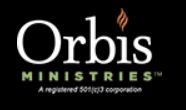How Can We Help?
Deliverance and Possession. Meaning and History
The term “demonized” and its historical and scriptural background are discussed by Ken Fish along with some points of struggle for Christians in understanding the concept1. Historical and Scriptural Background of “Demonized”
- Greek Origin: The word “demonized” comes from the Greek word daimonizomai, which is technically a deponent verb. This means it appears to be passive but is actually active in meaning. The word daimonizomai does not mean demon-possessed but rather suggests a sliding scale of demonic control or influence.
- King James Bible: In 1611, the translators of the King James Bible rendered daimonizomai as “demon-possessed”. This translation influenced the common understanding of demonization for centuries. The term “demon-possessed” became commonplace due to the influence of the King James Bible, which was the primary translation used for many years.
- Middle Ages Influence: The idea of “demon-possession” was a holdover from the way people viewed things in the Middle Ages.
- Modern Translations: More modern Bible translations, like the English Standard Version (ESV), footnote the term “demon-possessed” and explain that the Greek word daimonizomai means “oppressed by” or “controlled by spirits”7. This is a move away from the idea of possession as ownership.
- Points of Struggle for Christians
- Possession vs. Domination: A key struggle is the understanding of the word possession. Many evangelicals believe that if a person belongs to the Lord, they cannot be owned by the devil. The source explains that possession is not ownership, but rather domination. Just as Germany dominated Poland during World War II without owning it, a demon can dominate a person without owning them.
- Sliding Scale of Demonic Control: The Greek word daimonizomai implies a sliding scale of demonic control, rather than a simple state of possession. This is often a difficult concept for some Christians to grasp.
- Believers and Demonization: Some Christians struggle with the idea that believers can be demonized. The speaker clarifies that while a born-again Christian cannot have an evil spirit in their human spirit (where the Holy Spirit dwells), they can still be afflicted in their soul (emotions, memories, will) or their body.
- Deliverance at the Cross: Some believe that all evil spirits leave at the moment of conversion. The source argues that this is not the case and that many Christians need deliverance even after conversion.
- Theological Snobbery: Some Christians, particularly those from more theologically traditional denominations, may mock or dismiss the idea of deliverance, seeing it as a practice of less educated Pentecostals.
- Additional Key Points
- Deliverance is Not Exorcism: The speaker distinguishes between deliverance and exorcism. Exorcism is described as a series of scripted prayers and rituals. Deliverance, in contrast, involves driving out demons using the authority of Christ.
- Deliverance is Not Self-Deliverance: The source emphasizes that self-deliverance is not scriptural. It is necessary to have a believer minister deliverance to another believe.
- Deliverance is an Eviction: Deliverance is described as evicting a third-party intruder, not fixing the soul, which is inner healing. Deliverance is an eviction while inner healing is fixing the soul.
- Manifestation of Demons: When demons are driven out, it is common to have some kind of manifestation, although it may not always be loud. A demon may leave through coughing or sneezing or other bodily manifestations. The idea of “quiet deliverance,” where demons leave silently, is not supported in the scripture.
- Title: Deliverance in the Modern Age
- Speaker: Ken Fish
- Start time: 12:40
- End time: 20:00

Orbis Ministries – Link to Ken Fish’s Ministry material.
